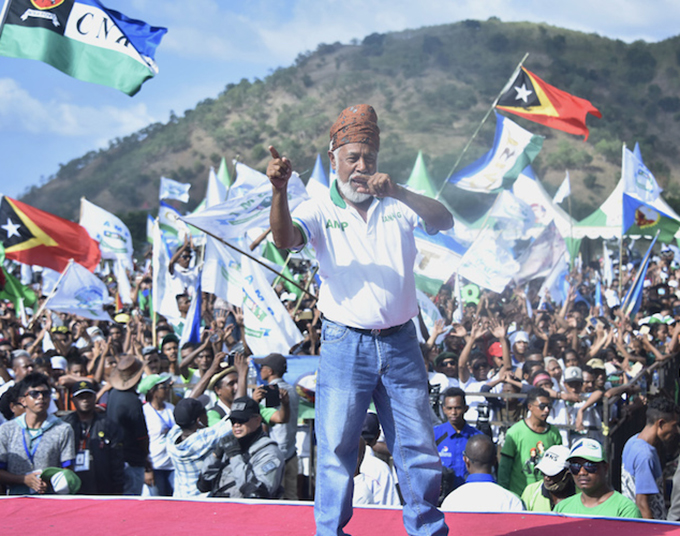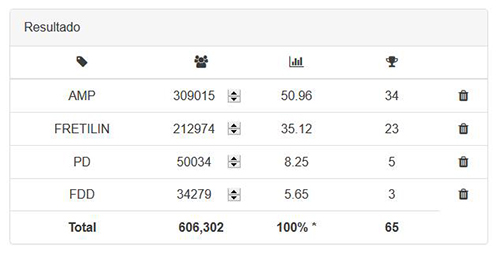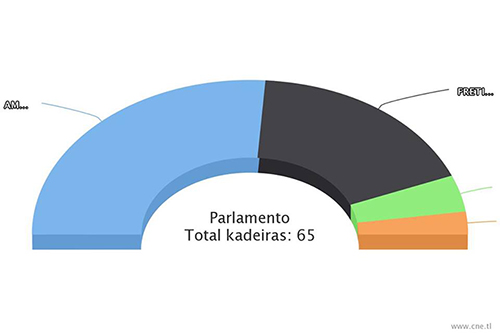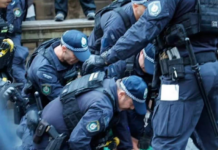
Pacific Media Centre Newsdesk
With more than 99 percent of votes counted in the poll, Timor-Leste’s opposition Alliance of Change for Progress (AMP) was leading at the weekend with 49.59 percent of the total votes and is set to break the country’s political deadlock.
The coalition squeaked across the line with an absolute majority, preliminary election results showed yesterday, after a fractious campaign marred by violence and mud-slinging, reports SBS-AFP News.
It was the second general election in less than a year for the half-island nation of 1.2 million that is struggling to boost its oil-dependent economy, after a months-long political impasse saw Parliament dissolved in January.
READ MORE: Timorese election resolves political stalemate

With 97 percent of votes from Saturday’s election counted, the three-party Parliamentary Majority Alliance (AMP) – led by independence hero Xanana Gusmao – had about 48 percent of the votes.
The result means the alliance – which includes the National Congress for Timorese Reconstruction (CNRT) led by Gusmao, the People’s Liberation Party (PLP) and the youth-based Khunto – has secured an overall majority of 34 seats in the 65-member legislature.

The former Portuguese colony won independence in 2002 after a brutal, 24-year occupation by neighbouring Indonesia followed by 2 1/2 years of UN stewardship.
Fretilin, which narrowly won last July’s poll, had about 36 percent, leaving it with 23 seats.
No reports of unrest
Despite a fractious campaign and fears of violence on election day, there were no reports of unrest.
Clashes broke out the previous weekend between Fretilin and opposition supporters, with more than a dozen people injured.
Parliament was dissolved and new elections called in January amid tensions between former Prime Minister Mari Alkatiri’s minority government and the opposition centred around Gusmao’s CNRT.
Dr Alkatiri’s Fretilin party-led government collapsed after its bid to introduce a policy programme and new budget were thwarted by a hostile opposition.
“This outcome should produce a return to political stability in Timor-Leste and may allow Xanana Gusmao time to again consider looking to a replacement leader from the next generation after a suitable amount of time has elapsed,” said Professor Damien Kingsbury, coordinator of the Australia Timor-Leste Election Observer Mission.
“In terms of economic policy, it will be business as usual, which raises questions about the longer term viability for Timor-Leste,” Dr Kingsbury added.
Big challenges ahead
The incoming government will face big challenges, especially as the clock is ticking fast on its disappearing oil and gas reserves.
Oil and gas pay for the bulk of government spending but oil revenues are in steep decline and the country has few other productive economic sectors.
About 60 percent of Timor Leste’s population is under 25, according to the World Bank, while some 40 percent of its people live in poverty.
Providing jobs for young people and reining in public spending – especially on large infrastructure projects – will be key tasks for the new government, commentators say.









































